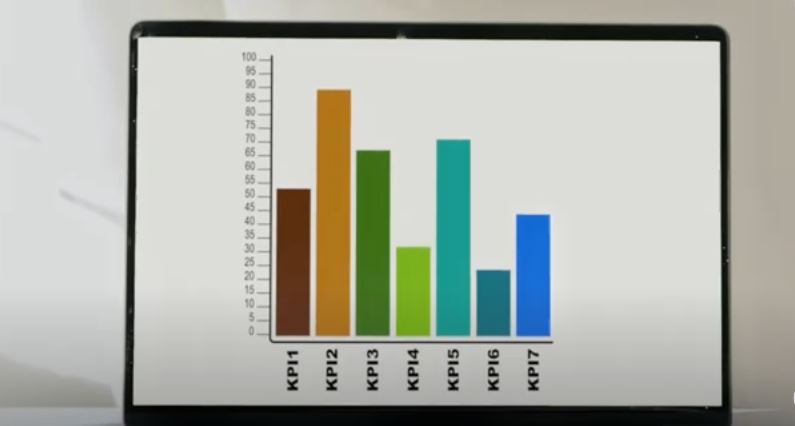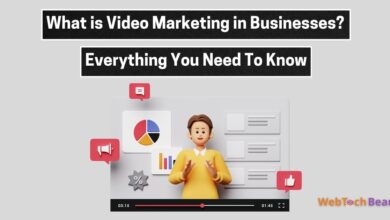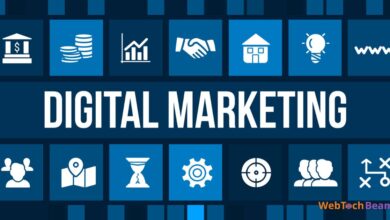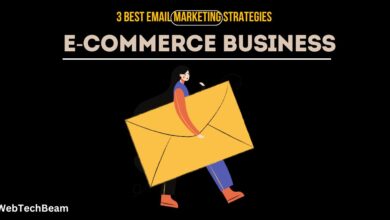Why is Social Media an Important Part of Inbound Marketing?

Inbound marketing is a marketing strategy focusing on attracting customers by providing valuable content and experiences tailored to their needs. Unlike traditional marketing, which often interrupts people with ads and promotions, inbound marketing brings customers to you.
This approach helps build trust and relationships with potential customers, making them more likely to choose your brand when they are ready to buy.
Social media plays a crucial role in inbound marketing strategies today. Platforms like Facebook, Instagram, and Twitter allow businesses to share engaging content, interact with customers, and foster community.
Using social media effectively allows companies to reach a larger audience, gather feedback, and create a more personalized experience.
This makes it easier for businesses to connect with customers and enhance their marketing efforts.
In this post, we will learn about Why is Social Media an Important Part of Inbound Marketing and how it helps businesses connect with their audiences.

Build Brand Awareness
Increasing Visibility Through Various Platforms
Building brand awareness is all about getting your brand noticed by more people. Social media platforms like Facebook, Instagram, and Twitter are great tools.
By regularly posting interesting and relevant content, businesses can reach new audiences.
Using hashtags, engaging visuals, and even partnering with influencers can help increase visibility and attract attention to your brand.
Strategies for Effective Brand Storytelling on Social Media
To connect with their audience, businesses need to tell a good story. Sharing stories about a product’s creation, customer experiences, or the brand’s mission can make a significant impact.
Using videos, images, and engaging captions can help make these stories more relatable and memorable. The more people connect with the story, the more they will remember the brand.
Engage with the Target Audience

Importance of Two-Way Communication
In inbound marketing, it’s really important to have a two-way conversation with your audience. This means businesses shouldn’t just talk to their customers but also listen to what customers say.
Responding to customer inquiries and feedback shows that you care about their opinions. When companies engage with their audience by replying to comments or messages, it builds trust and a strong relationship.
Encouraging user-generated content, like reviews or photos shared by customers, is another excellent way to engage. It makes customers feel valued and part of the brand’s journey.
Creating Community Around the Brand
Creating a sense of community around your brand is essential in inbound marketing. When customers feel like they are part of a group, they are more likely to stay loyal to your brand.
This can be achieved by using social media platforms to connect people with similar interests related to your products or services.
Hosting online events, quizzes, or discussions can foster this community feeling.
Together, these efforts help to strengthen the bond between the brand and its customers, making them more likely to advocate for the brand in their social circles.
Drive Website Traffic
How Can Social Media Channels Funnel Traffic to Websites?

Social media channels are powerful tools for driving traffic to your website. When businesses share links to their website content on platforms like Facebook, Twitter, or Instagram, they invite their followers to click and explore more. This means more people can discover the business’s products, services, and valuable information.
By creating exciting posts with links, businesses can encourage their audience to visit their website and learn more about what they do.
Importance of Link Sharing and Call-to-Action Strategies
Link sharing is important because it directs people to the business’s website, helping them find more details or make purchases. Clear call-to-action strategies encourage visitors to take specific steps, like “Visit our website for more!” or “Check out our latest blog post!”
These calls to action guide users on what to do next, making engaging with the brand easier and increasing the chances that they will convert from visitors to customers.
Enhance SEO Efforts
Correlation between Social Media Presence and Search Engine Ranking
A strong presence on social media can positively affect how your website ranks on search engines like Google. When you share content from your website on social media, it can attract more visitors.
If more people click on your links and spend time on your site, search engines see this as a sign that your content is valuable. This can improve rankings, making it easier for people to find you online.
Generating Backlinks Through Shared Content
Backlinks are links from other websites that point to yours and are essential for SEO. When you share great content on social media, other people and businesses are likelier to link back to it, especially if it’s interesting or valuable. This increases your website’s credibility and improves your search engine ranking.
Thus, posting shareable content on social media drives traffic and helps build valuable links that can benefit your SEO efforts.
Nurturing Leads
Utilizing Targeted Content Strategies for Lead Generation
To nurture leads effectively, businesses must create content that resonates with specific audiences. This means understanding potential customers’ interests and providing valuable information that meets their needs.
For example, if a company sells sports gear, it might share helpful articles on training tips, reviews of equipment, or videos demonstrating how to use its products.
By offering relevant content, businesses can draw in leads and keep them engaged, making them more likely to turn into customers.
Role of Social Media in the Customer Journey
Social media plays a crucial role throughout the customer journey. From the moment a person discovers a brand to when they make a purchase and beyond, social media helps to guide them. It allows businesses to share updates, respond to questions, and showcase their products.
When potential customers see positive interactions, they feel more confident in buying decisions. By using social media effectively, companies can support customers at every step, making the journey smoother and more enjoyable.
What Are Key Performance Indicators (KPIs) for Social Media in Inbound Marketing?

Key performance indicators (KPIs) are important metrics that help businesses measure the success of their social media efforts in inbound marketing.
These indicators provide insight into how well social media strategies work and whether they achieve desired goals. Common KPIs include engagement rates, which indicate how many users like, share, or comment on posts.
Additionally, tracking follower growth shows how well a brand expands its audience. Metrics such as website traffic from social media links and conversion rates help businesses understand how effectively social media leads potential customers to take action, like making a purchase.
By regularly reviewing these KPIs, businesses can refine their strategies and improve their overall marketing effectiveness.
Conclusion
In summary, social media is vital in inbound marketing by helping businesses connect with their audience, drive website traffic, enhance SEO, and nurture leads. Its ability to foster community and encourage engagement makes it an essential tool for building brand loyalty.
As we progress, businesses must adopt a proactive approach to integrating social media into their marketing strategies. By doing so, they can better meet the needs of their customers and stay ahead in an ever-evolving digital landscape. Embracing these opportunities will elevate their marketing efforts and ensure lasting connections with their audience.
FAQs
How often should businesses post on social media to see results?
While there’s no one-size-fits-all answer, businesses generally benefit from posting consistently. Aiming for at least 3-5 times per week is a good starting point. Monitoring engagement can help determine the optimal frequency for your specific audience.
How does social media marketing fit into inbound marketing?
Social media marketing is vital to inbound marketing because it helps attract people to your brand. By sharing valuable content and engaging with your audience online, you create interest and encourage potential customers to learn more about your products or services.
Why is social media marketing important in a marketing strategy?
Social media marketing is essential because it helps businesses connect with their audience more personally. It allows companies to showcase their brand, answer questions, and build relationships, which can lead to increased sales and customer loyalty.
Is social media inbound or outbound marketing?
Social media is considered both inbound and outbound marketing. It’s inbound when it attracts customers through engaging content. Still, it can also be outbound when businesses promote their messages directly to a broad audience, such as through ads.
How does social media play an essential role in marketing?
Social media plays a crucial role in marketing by increasing brand visibility, driving website traffic, and allowing companies to interact with customers in real-time. It also helps build a community around a brand, making customers feel more connected.





